The Eccleston Street building known as ‘Flat Iron House’ (owing to its unusual shape) is the former Lancashire Watch Company Warehouse. Prescot was once famous for watch-making. In 1795, it was said that ‘the town produces the best in the world’. At one time, there was a workshop at the back of every house in Eccleston Street and nearby Atherton Street, where parts were made or watches assembled. The watch trade eventually died out in Prescot in the 1920s.
A giant pocket watch on display.
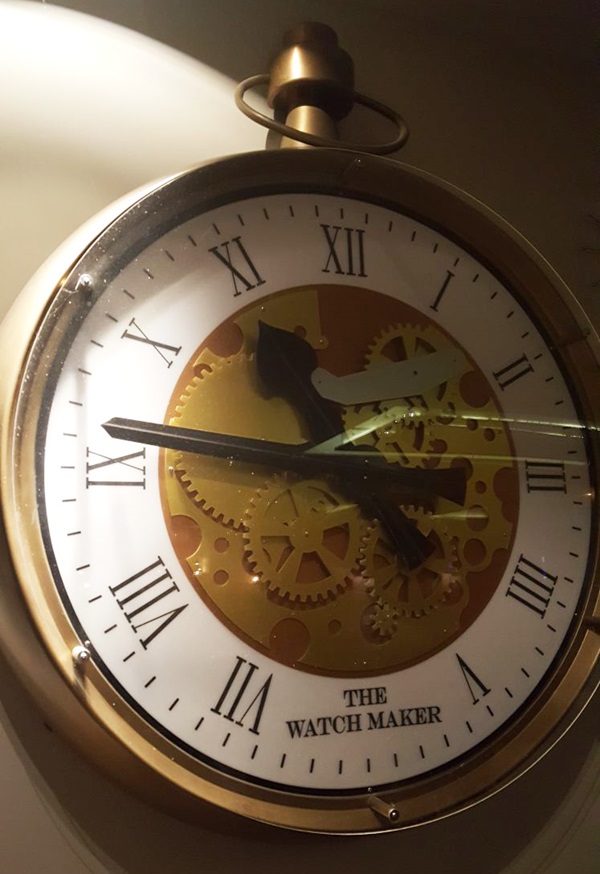
The text reads: This giant pocket watch was commissioned for J D Wetherspoon as a tribute to the watchmaking industry that Prescot was once famous for. At one time there was a workshop at the back of every house in Eccleston Street and nearby Atherton Street, where parts were made and watches assembled.
A photograph and text about the Prescot fire brigade.
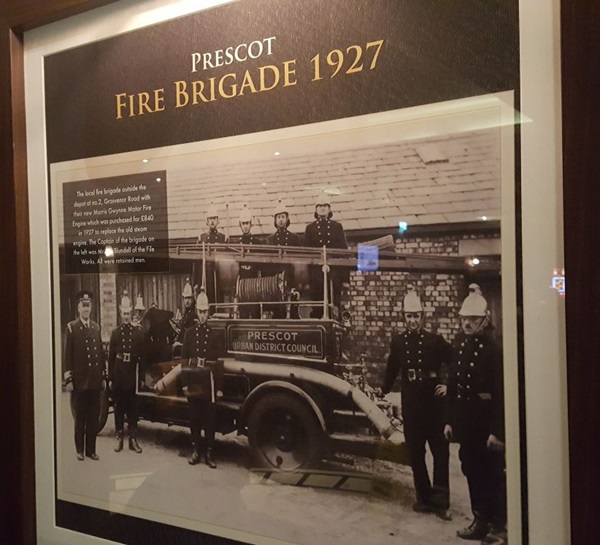
The text reads: The local fire brigade outside the depot at no. 2, Grosvenor Road with their new Marris Gwynne Motor Fire Engine which was purchased for £840 in 1927 to replace the old steam engine. The captain of the brigade on the left was Mr Blendell of the File Works.
A photograph and text about the Prescot miners’ strike, 1926.
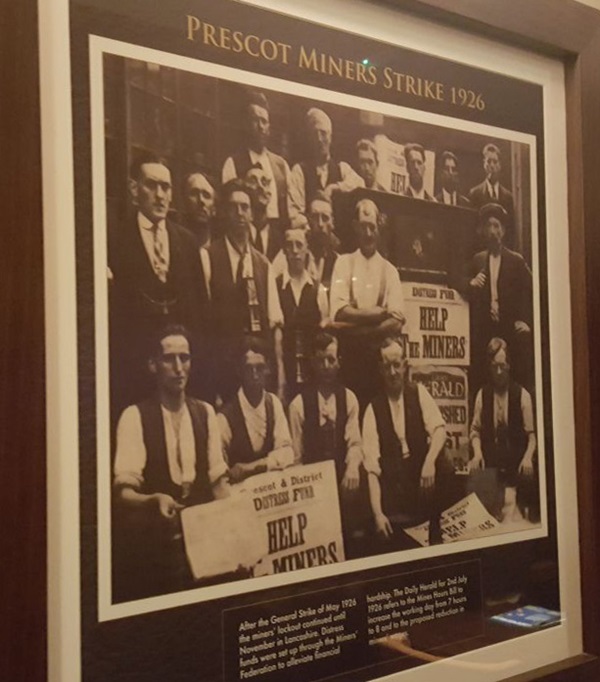
The text reads: After the general strike of May 1926 the miners’ lockout continued until November in Lancashire. Distress funds were set up through the Miners’ Federation to alleviate financial hardship. The Daily Herold for 2 July 1926 refers to the Miner’s Hours Bill to increase the working day from 7 hours to 8.
A photograph of Thomas Seddon’s shop at 29 St Helens Road, decorated for the coronation of George V in 1910.
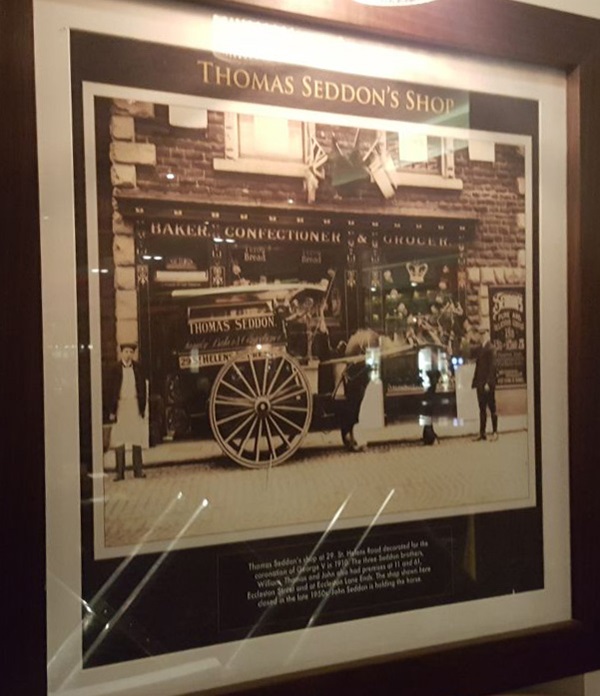
A photograph and text about James Lucas.
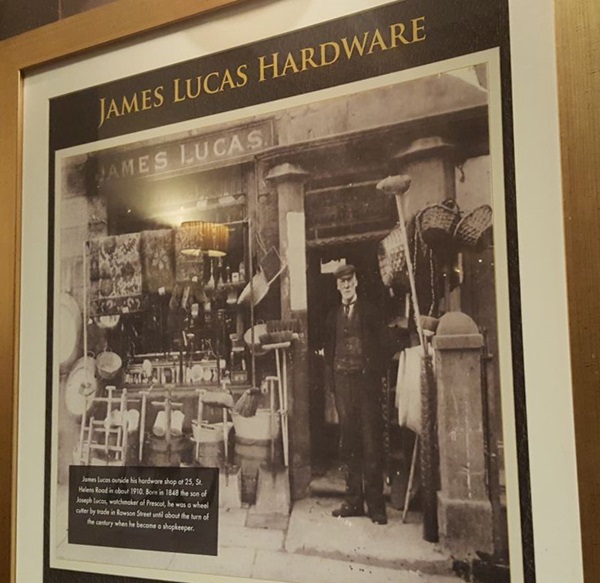
The text reads: James Lucas outside his hardware shop at 25 St Helens Road in about 1910. Born in 1848 the son of Joseph Lucas, watch-maker of Prescot, he was a wheel cutler by trade in Rawson Street until about the turn of the century when he became a shopkeeper.
A photograph of High Street, Prescot.
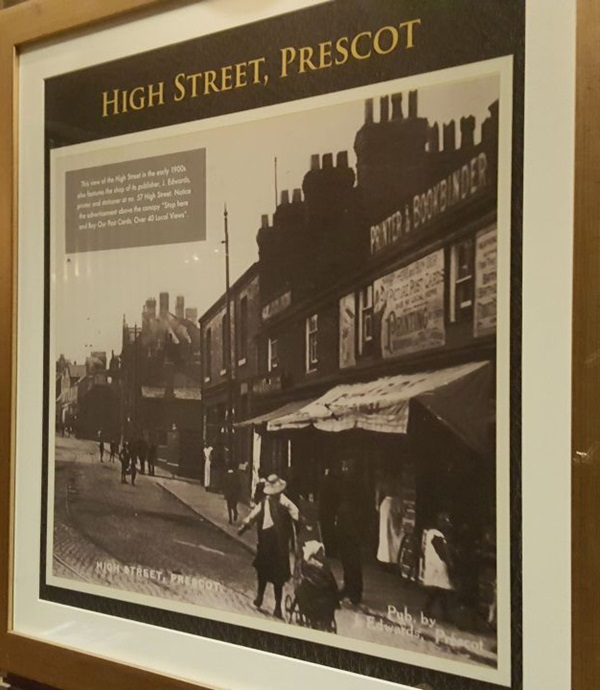
The Owl and the Pussycat, written by Edward Lear – who once worked at Knowsley Hall.
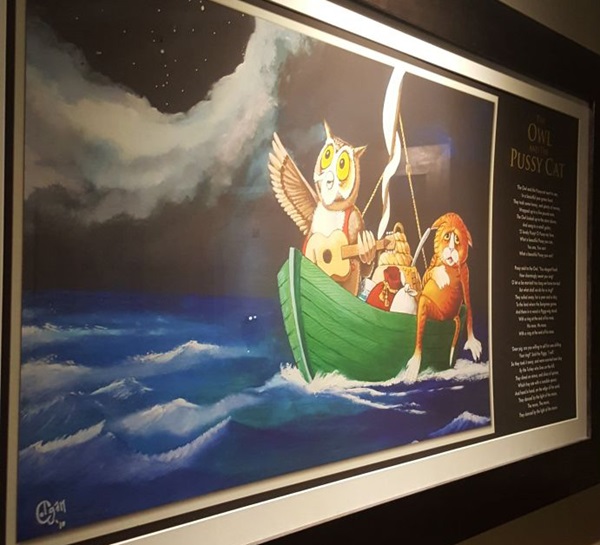
The Owl and the Pussycat went to sea
In a beautiful pea-green boat,
They took some honey, and plenty of money,
Wrapped up in a five-pound note.
The Owl looked up to the stars above,
And sang to a small guitar,
"O lovely Pussy! O Pussy, my love,
What a beautiful Pussy you are,
You are,
You are!
What a beautiful Pussy you are!"
Pussy said to the Owl, "You elegant fowl!
How charmingly sweet you sing!
O let us be married! too long we have tarried:
But what shall we do for a ring?"
They sailed away, for a year and a day,
To the land where the Bong-Tree grows
And there in a wood a Piggy-wig stood
With a ring at the end of his nose,
His nose,
His nose,
With a ring at the end of his nose.
"Dear Pig, are you willing to sell for one shilling
Your ring?" Said the Piggy, "I will."
So they took it away, and were married next day
By the Turkey who lives on the hill.
They dined on mince, and slices of quince,
Which they ate with a runcible spoon;
And hand in hand, on the edge of the sand,
They danced by the light of the moon,
The moon,
The moon,
They danced by the light of the moon.
A stained-glass window depicting The Owl and the Pussycat.
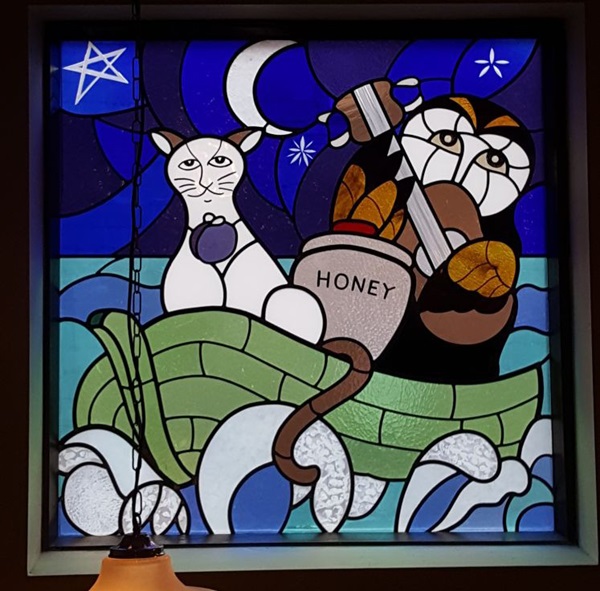
A replica of a ducking stool.
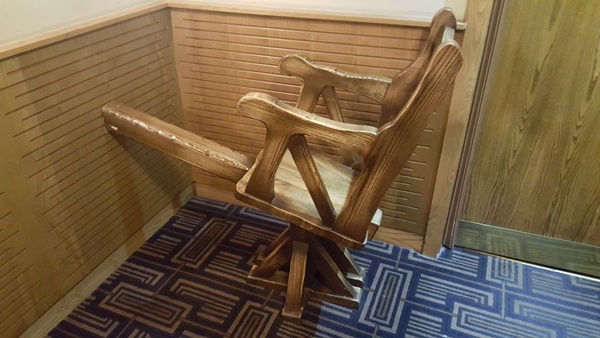
The text reads: Squire’s Place, which once stood where the present car park is, was the site of the cuckstool pits, where people were punished. The ducking stool was an implement used in the punishment of persons who were considered to be nuisances to the community. The offender would be tied to the device and ducked into the water, hence the term ‘ducking’ stool.
An oil painting entitled Prescot Parish Church, by Chris Beesley.
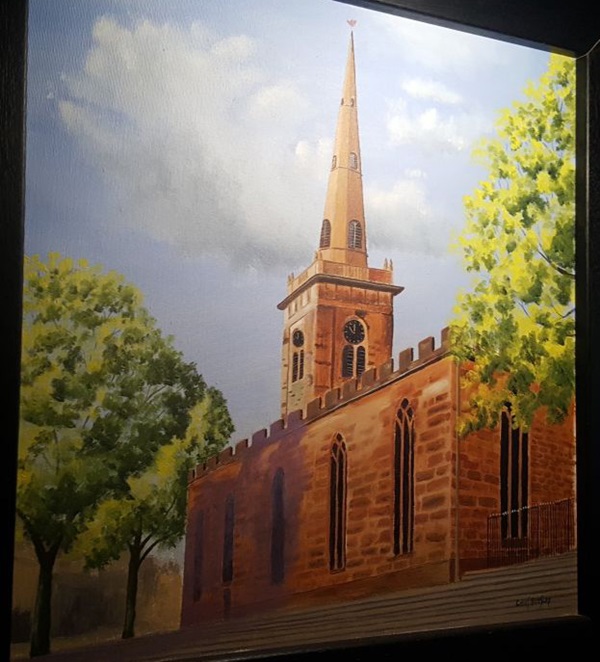
“I am a self-taught artist, mostly painting and selling within the Cheshire and Cornwall areas. After spending some twenty years as a graphic designer, I decided to pursue a career in art and now enjoy the benefits of being a full time artist and art tutor. My preferred medium is oils, although I have extensive experience in other mediums.
External photograph of the building – main entrance.
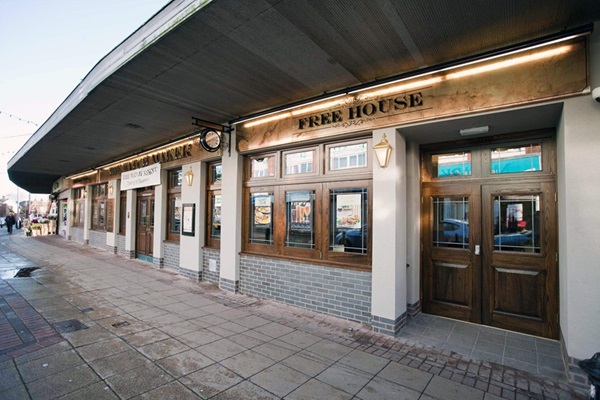
If you have information on the history of this pub, then we’d like you to share it with us. Please e-mail all information to: pubhistories@jdwetherspoon.co.uk